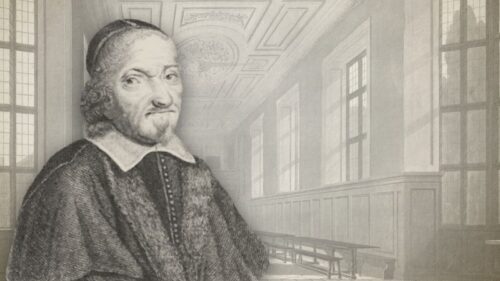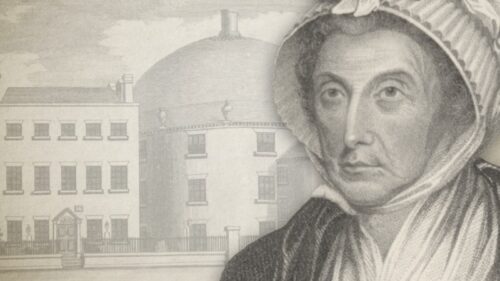-
John Brine (1703-1765) And His Contemporaries As Seen By Modern Revisionists
Part II: Brine’s Theology In his Treatise on Various Subjects Brine says his calling is to defend the doctrines and principles of our religion, and to vindicate the sacred Word of God. As time is less than our subject craves, I shall select a few of his defences and vindications relevant to today’s debate and deal with justification, duty-faith, redemption, regeneration and sanctification. Justification Biblical justification involves the full salvation of sinners, including election, union with Christ, adoption, forgiveness of sins, imputation, redemption, regeneration and sanctification. Today’s Pseudo- Reformed claim that justification is a mere legal formality from God’s side pronounced when sinners exercise duty-faith. Sanctification then fills justification’s empty vessel by adherence to a cut-down moral law. Brine, arguing in his Defence of Justification…
-
John Brine (1703-1765) And His Contemporaries As Seen By Modern Revisionists
Part I. Brine’s Life First, a few words of explanation. You might think there is more George Ella and our present contemporaries in this lecture than John Brine and his. This is because there is a good deal of John Brine in George Ella and most of our contemporaries positively hate John Brine so we must deal with them firmly but fairly or Brine has taught us in vain. So I am very blunt and particular in my evaluation of Brine’s reception today amongst our self-styled ‘Moderate Calvinists’. Nowadays, these moderately Reformed ministers who strive immoderately to muzzle us are rejecting every single doctrine of the Reformation, ridiculing and condemning those who do not share their errors. Whether I speak in Germany, Britain, the USA…
-
John Gill And The Charge Of Hyper-Calvinism
One of the most successful Baptist contenders for the truth in the 18th century was John Gill (1697-1771) , a London pastor who was second to none in the kingdom for scholarly learning and prowess as a preacher. Sadly Gill has faded from the reading of most evangelicals, owing to the fact that his successors held to a radically different view of the gospel. Now he is being rediscovered as the number of publications dealing with him over the last few years show . Something, however, is going seriously wrong. Though contemporary American works such as Thomas J. Nettle’s By His Grace and for His Glory and Timothy George’s essay on Gill in Baptist Theologians show clearly that Gill was no Hyper-Calvinist but a great…
-
John Gill and His Successors
The witness and teaching of Dr John Gill (1697-1771) so impressed his friends Augustus Toplady and James Hervey that they maintained his work would still be of great importance to future generations. This also became the conviction of John Rippon (1750-1836) and Charles Haddon Spurgeon (1834-1892), Gill’s more well-known successors to his pastorate, but it was also the testimony of those who served for shorter periods at Carter Lane such as John Martin, Benjamin Francis and John Fawcett. The witness of these faithful men of God has helped point generations to Gill’s works which have subsequently enriched their lives. The present evangelical establishment is apparently striving to unite Calvinism with Arminianism, Baxterism and worse in an effort to promotean ecumenical doctrinal mish-mash which will suit…
-
John Gill and the Cause of God and Truth
So often when speaking about the work of the Holy Spirit which infused the churches with new life in the 18th century, mention is made of Anglican stalwarts such as Whitefield, Hervey, Toplady and Romaine. The works of these men through God’s sovereign grace cannot be praised enough but the fact that recent biographers have highlighted their activities has tended to give the impression that other denominations, such as the Baptists, were quite inactive during this period. This is by no means the case as the testimony of John Gill shows. John Gill was born in 1697 in the town of Kettering and became a member of the Particular Baptist church there before being called to the pastorate at Goat Yard Chapel, Horselydown, London. This…
-
The Ministry of Septimus Sears (1819-1877)
The Ministry of Septimus Sears (1819-1877) as Seen By his Congregation and Challenged by David Gay Septimus Sears, renowned in England as one of the country’s most outstanding pastors and preachers, started his ministry at the age of 20 before taking over Clifton Strict Baptist Church, Bedfordshire which he shepherded from 1842 to his death in 1877. Sears suffered all his life from severe heart trouble and was burdened by long periods of paralysis and typhus. His neck bones were so deformed that he had to wear an iron collar to support his head. Nevertheless, he preached three times on the Lord’s Day and often during the week. He edited two Christian magazines, The Little Gleaner and The Sower, and published many sermons besides a…





